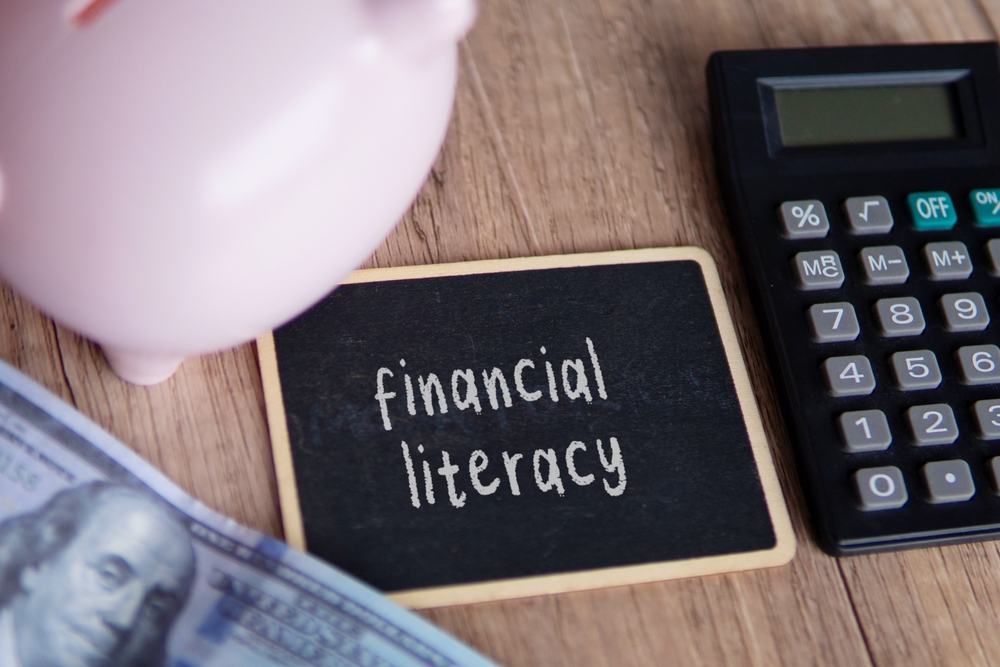This article was originally published by the Santa Barbara News Press on January 21, 2023.
Financial literacy for U.S. college graduates is abysmal. In a recent survey of over 30,000 college graduates from more than 440 schools across the country only 53% said they felt prepared to manage their money and finances. This really puts our young people at a disadvantage as they begin their careers.
I was fortunate to learn a lot about budgeting, profit, loss and finances early on. While in grade school I had my own businesses; I was a paperboy for the Santa Barbara News-Press, I had gardening jobs and worked as a box boy at Safeway. While attending Bishop Diego High School, I was elected ASB Treasurer where I “cut a deal” with Herb Petersen, the owner of McDonald’s on Upper State, to bring Big Macs and milkshakes daily to the school. I ran that lunch program throughout my senior year. Those educational work-experiences were invaluable to me later in life.
Our young people are not equipped to handle their finances for a lot of reasons. Parents have taken the financial responsibilities out of the hands of their children. “Helicopter parenting,” a style of parenting where parents are overly focused on their children, has become more and more prevalent. “Helicopter parents” typically take too much responsibility for their children’s experiences and, specifically, their successes or failures. Today there are more parents taking care of their children’s finances, leaving young people and often college graduates, ill-equipped to take care of their financial responsibilities. It is important to give our young people financial education and responsibility early on.
As a new college graduate, one may now be launching into their first serious job, bringing with it their first real paycheck. What to do with your money can be overwhelming. But remember, you have the greatest financial advantage of all on your side: time!
Financial literacy is crucial. This includes paying off debt, creating a budget and understanding the difference between various financial instruments. In sum, financial literacy has a material impact on families as they try to balance their budget, buy a home, fund their children’s education and ensure an income for retirement.
An important step in creating a plan to manage one’s finances is to establish a budget. Make a commitment to do so right away. Once you have determined precisely where your money is going, you can confidently manage your expenditures, knowing what you can afford and when. Personal finance is 20% knowledge and 80% behavior. Ensure that you track spending. Put together a plan to pay off debt. Overall, always aim to spend less than you make.
I am often asked when is the best time to start a retirement plan. It reminds me of the question, “when is the best time to plant an oak tree?” The best time is now! If you are not contributing to a retirement plan, you are giving money to Uncle Sam you could keep for your retirement! Contribute as much as you can to your retirement fund now, before significant expenses such as buying a house and raising children come into play. Indeed, make sure you reach your employer match, if you have one, (typically 3-6%) since it’s free money!
Establish an investment portfolio, in addition to your retirement plan. Start small, perhaps with a no-load mutual fund. Be consistent in contributing to this investment account on a regular basis.
Build your credit. Good credit is the key that unlocks many doors to financial success. A high credit score will help you get the best rates on loans, insurance, and a mortgage. Many employers and landlords also check credit scores when making employment and or tenancy decisions for due diligence. Now is the time to begin building your credit. In terms of debt, tackle all high-interest balances first.
Establish an emergency fund. Set aside three to six months’ worth of living expenses. While you may never need it, having this cushion in place just in case you become injured, ill or lose your job is great for peace of mind. Have those funds in a money market mutual fund or a high-yield savings account ensuring your liquid money is working as hard as possible.
Amid all these responsible behaviors, don’t forget to have fun! Put aside a portion of your money each month to save/invest (20% or so), and then spend some guilt-free money on adventures, eat delicious food, go to that concert or take that trip you’ve wanted to take! You’ve done well. Now is your time to enjoy!
And above all, stay the course!
Contact Tremblay Financial Services financial advisors in Santa Barbara today!








